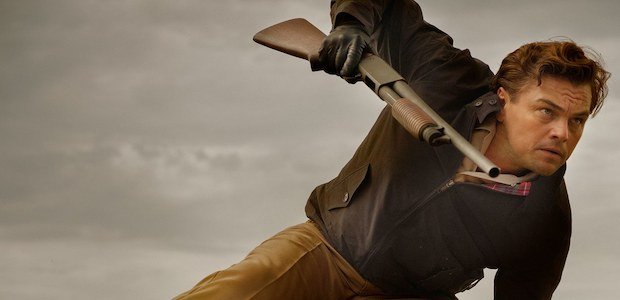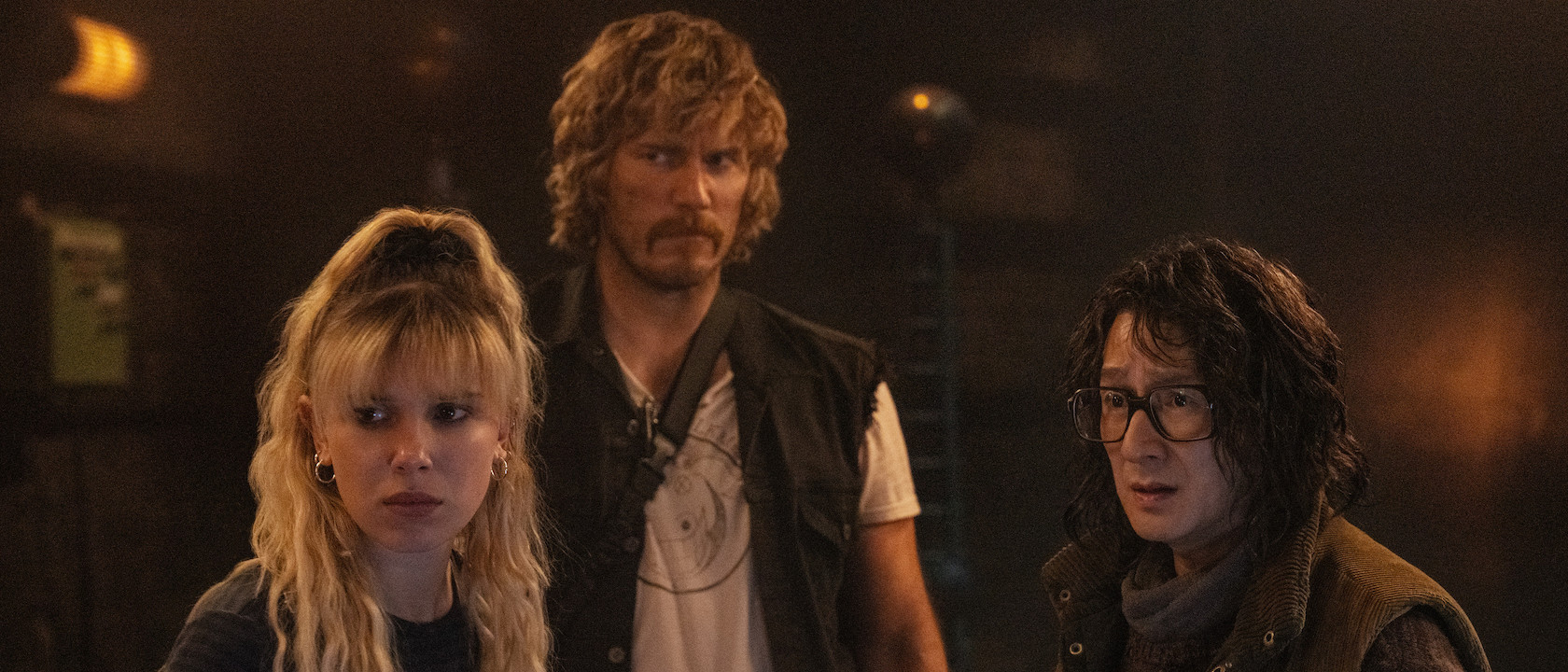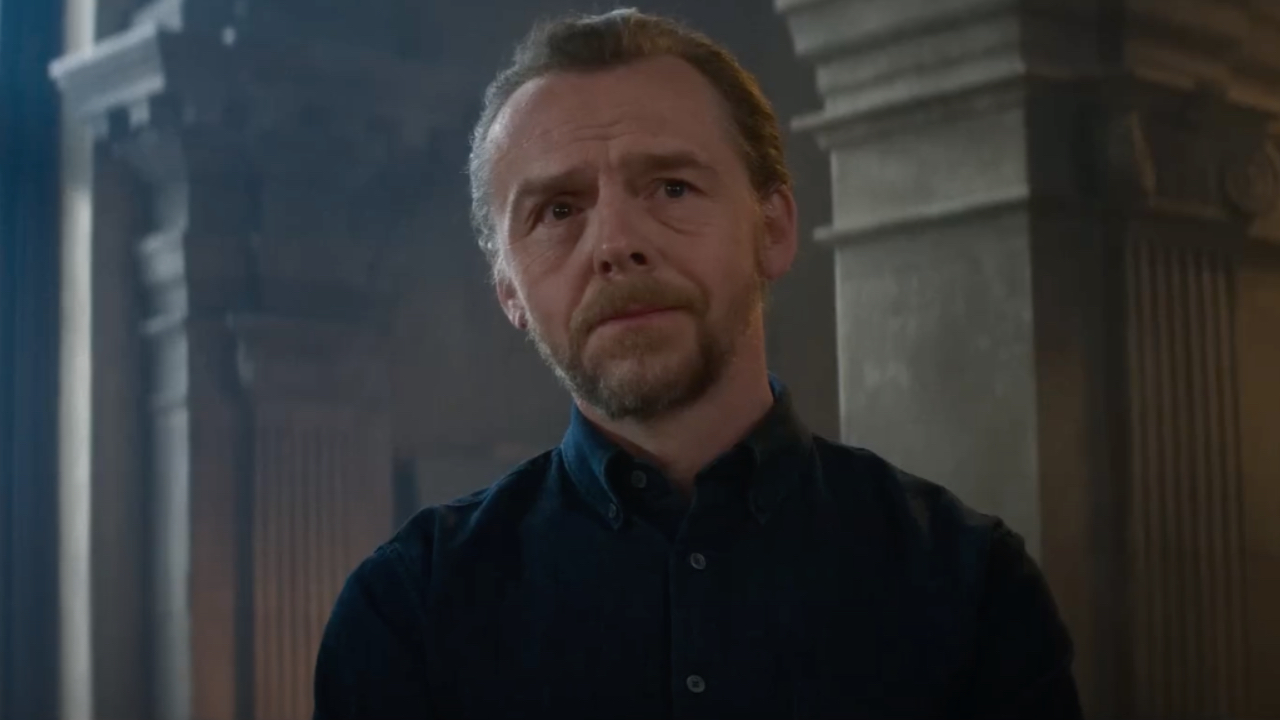The cinematic landscape is littered with love letters to Hollywood. They can be lyrical (La La Land or Singin’ in the Rain), cynical (Robert Altman’s The Player or Sunset Boulevard), mysterious (Mulholland Drive) and hilarious (Tropic Thunder). But none boast the unique voice and viewpoint that Quentin Tarantino brings to his meditative, shrewd, and surprisingly mature drama Once Upon a Time… in Hollywood.
Once Upon a Time… in Hollywood caught me off guard with its depth. Tarantino has always been a master of mimicry, borrowing visual and thematic elements from his favorite genres but reshaping them into aggressive, confrontational westerns (Django Unchained), war pictures (Inglourious Basterds) and vengeance epics (Kill Bill volumes one and two).
Once feels different. It’s not a stylized replica of an existing genre, but rather a broader yet laser-focused commentary track about the industry, in general, that Tarantino has chosen to call his own. This is a beautiful and poignant snapshot of a bygone age, littered with gorgeous odes to the method of storytelling Tarantino has perfected over the years. It’s Quentin’s movie about movies, made as only Tarantino can.
But even that description limits Tarantino’s ambitious approach. For in setting his story on three very specific days in 1969, the writer-director also brushes up against the specter of the Charles Manson murders, the impact this threat had on that community, and the seismic shift happening in the Southern California culture during that era. Working class stiffs like blue-collar stunt man Cliff Booth (Brad Pitt) or fading character actor Rick Dalton (Leonardo DiCaprio) counter-balance the rise of the hippie community, fighting to hold on to a series of norms that are slipping through their fingers like grains of sand.
All three men at the heart of Once – Pitt, DiCaprio and especially Tarantino – allow decades of experience to color in their roles. None of them could have made Once any earlier in their careers – or if they tried, the movie wouldn’t be nearly as discerning and judgmental as the feature ends up being.
By following Dalton around the sets of his latest projects, Tarantino posits that the most interesting aspects of entertainment occur between takes, where an up-and-coming ingenue instructs Rick how to stay in character, or Cliff picks a fight with Bruce Lee (Mike Moh, terrific in his brief appearance).
And yet, according to Tarantino, Hollywood will always be a Mecca to which dreamers flock… then fight against ridiculous odds to stay. Rick has an honest confession about his need to own property in Los Angeles, for fear of looking like an outsider if he just rents. And in that narrative, we find Sharon Tate (Margot Robbie), an actress currently married to red-hot director Roman Polanski who happens to live next door to Rick. Their paths will cross, but not before both characters are able to reflect both sides of the showbiz fantasy – the starlet whose tickled by the opportunity to watch one of her movies with an audience, and the nearly-washed-up “cowboy” whose self-doubt overwhelms his talent, and could cost him a career.
Once Upon a Time… in Hollywood is Tarantino’s most contemplative, mature and introspective film since Pulp Fiction. It might be the first and only film in his body of work that feels personal. It’s the concise work of a veteran storyteller who is looking back on a brilliant career and reflecting on the power of film, while shining a spotlight on the blood, sweat and tears that goes into creating entertainment for an audience.
DiCaprio gives the best performance of his career, nailing the insecurities that plague Hollywood talent while also tapping into the on-screen presence that makes people like Rick Dalton -- and, by extension, DiCaprio and Brad Pitt -- movie stars in the first place. Pitt also mesmerizes, playing a contemporary cowboy surveying a changing landscape as L.A. turns over to the hippies and flower children he can't quite understand.
Paralleling the path of Rick Dalton to the arrival of Sharon Tate and the looming counterculture shift of Manson and the hippie movement says a lot, I'm sure, about L.A. in the '60s, and it's here where -- as an East Coast kid -- I probably lose some of the insight Tarantino is pouring into the story. But his music choices, and his loping camera work (with the aid of longtime cinematographer Robert Richardson) bring a bygone era of California history to life with stunning accuracy.
Once Upon a Time… in Hollywood is bold yet wistful. It's more mature and thoughtful than most Tarantino shock efforts, and it strikes like a viper with earned violence when needed. The screenplay provides an unflinchingly honest, pulse-racing and frequently surprising trip through the Golden era of Hollywood, and its uniquely flawed players. It’s a difficult, hilarious, insightful, expertly-crafted Bible that QT devotees will unpack for generations.

Sean O’Connell is a journalist and CinemaBlend’s Managing Editor. Having been with the site since 2011, Sean interviewed myriad directors, actors and producers, and created ReelBlend, which he proudly cohosts with Jake Hamilton and Kevin McCarthy. And he's the author of RELEASE THE SNYDER CUT, the Spider-Man history book WITH GREAT POWER, and an upcoming book about Bruce Willis.
How To Watch Hacks Season 4 Online And Stream The Emmy-Winning Comedy Drama Series From Anywhere
Universal's New UK Theme Park Lands Are Already Being Rumored, But It's The One That's Not Listed That Has Me Shocked
Simon Pegg Wants To Make One Thing Clear When It Comes To Rumors About What Tom Cruise Is And Isn't Doing In The Mission: Impossible Movies











